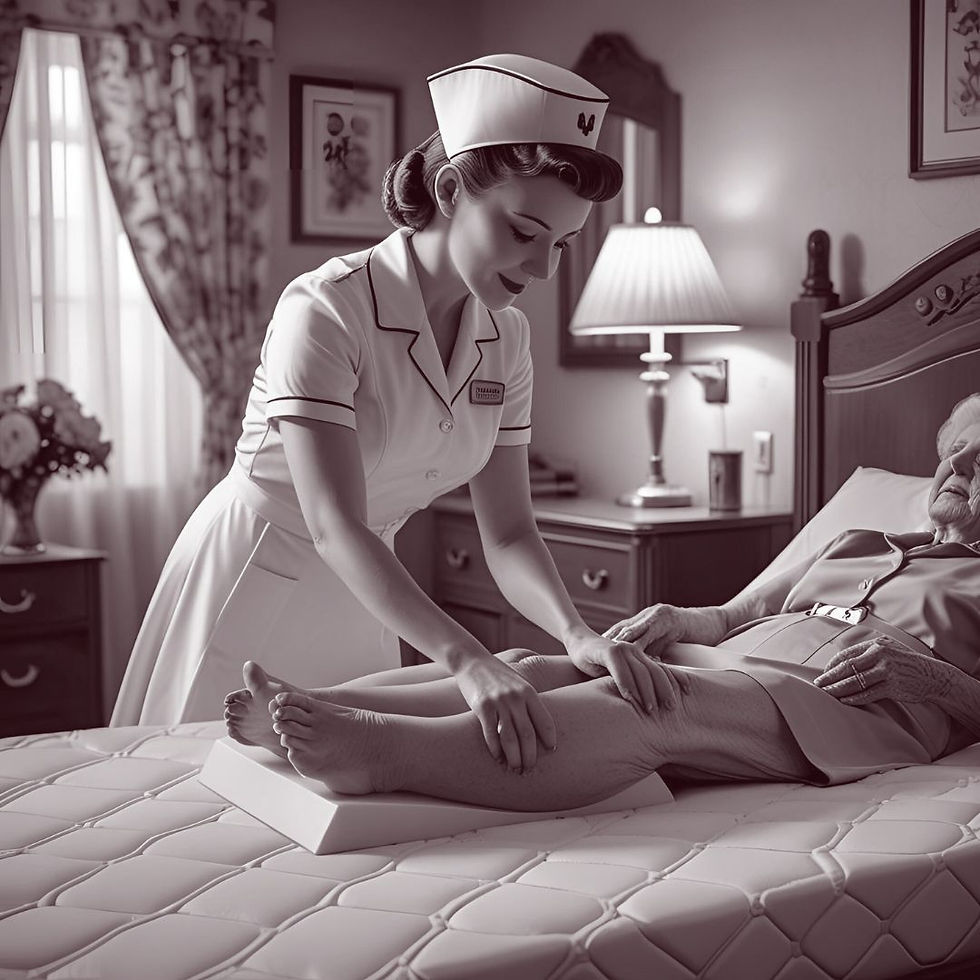Preventing Bedsores at Home: A Guide for Family Caregivers
- A Plus Homecare - Research Team

- Jun 19
- 2 min read
Because comfort and dignity start with proper care.
For individuals who spend a lot of time in bed or seated, such as seniors or those recovering from illness or surgery, bedsores (also known as pressure ulcers) can be a serious risk. These painful sores form when prolonged pressure reduces blood flow to certain areas of the body—typically the heels, hips, lower back, or tailbone.
But here’s the good news: bedsores are preventable with the right care strategies at home.
At APlus Homecare Services, we work with families to prevent and manage bedsores before they become a problem. Here's how we help—and what you can do too:

💡 1. Reposition Regularly Preventing Bedsores at Home: A Guide for Family Caregivers
Changing your loved one’s position every 2 hours in bed or every 30 minutes in a chair helps relieve pressure points. For bed-bound individuals, gentle side-to-side turns and support with pillows can make a huge difference.

🛏️ 2. Use Pressure-Relieving Aids
Invest in specialty cushions, mattresses, or overlays designed to reduce pressure. Foam
wedges, gel cushions, and alternating-pressure mattresses are great tools our caregivers often use to enhance comfort and protection.

🧼 3. Keep Skin Clean and Dry
Moisture from sweat or incontinence can weaken the skin. Ensure daily hygiene routines and use moisture-barrier creams to protect vulnerable areas. Our PSWs are trained to spot early warning signs of skin breakdown.

🥗 4. Promote Healthy Nutrition and Hydration
Good skin health starts from within. A balanced diet rich in protein, vitamin C, and zinc, along with plenty of fluids, helps keep skin strong and better able to heal.

👀 5. Check the Skin Daily
Early detection is key. Look for redness, discoloration, or areas that feel warmer than usual. If you notice anything concerning, contact a healthcare professional right away. Our caregivers are trained to report changes immediately and adjust care accordingly. Preventing Bedsores at Home: A Guide for Family Caregivers

❤️ 6. Don’t Do It Alone
Caring for someone at home can feel overwhelming. That’s why families trust APlus Homecare Services. Our experienced PSWs provide hands-on assistance and expert guidance to prevent complications like bedsores—so your loved one can stay comfortable, safe, and at home.
Your loved one’s comfort is our priority. Let’s work together to keep them safe.
📞 Call us today at 416-435-9000
📧 Email info@aplusmed.ca







Comments